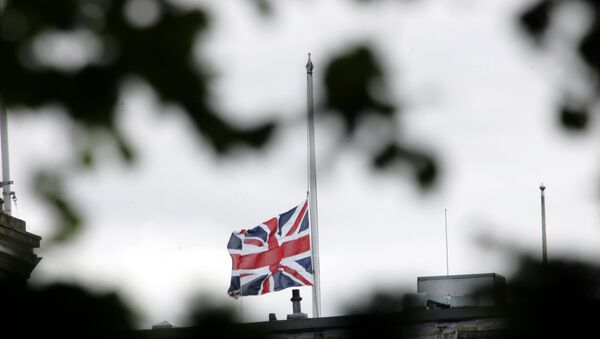Britain’s economy is heading towards its worst recession in 300 years due to the coronavirus pandemic, the Bank of England said in its forecast unveiled on 7 May. According to the report, which analysed the impact of the pandemic, the GDP contracted by three percent in the first quarter of the year and could fall by as much as 25 percent in the second quarter. This would make the UK’s economy about 30 percent smaller than in 2019.
Despite the grim forecast, the Bank of England's Governor Andrew Bailey noted that the country’s economy could rapidly recover next year, bouncing back quicker than it did during the 2008 economic crisis. Growth could reach 15 percent, with the GDP returning to its pre-pandemic peak.
"What is missing from this analysis is the uncertainty and the possible further negative impact on the economic growth due to Brexit", said Dr George Theocharides, associate professor of finance at the Cyprus International Institute of Management, commenting on the report from the British central bank. Professor Theocharides noted that a rapid recovery of the economy would be unlikely if Brexit is not resolved.
"The truth is that, due to the current medical and economic crisis, Brexit has fallen off the radar. The transition period will end on Dec. 31st, and there is very slow progress in the negotiations. Since the UK is resisting an extension to the transition period, there is a strong likelihood of a no-deal Brexit. This scenario on its own and without the coronavirus crisis can cause great damage to the UK economy. If you couple this with the expected recession due to the current crisis, it makes it much worse. So, unless a deal is reached or an extension is allowed for the transition period, the strong recovery expected by the BoE for 2021 is unlikely to happen. Rather than a strong recovery, more uncertainty and slower growth would be the scenario for next year", said Professor Theocharides.
Dr Richard Wellings, acting research director at the British think-tank the Institute of Economic Affairs, argues that the only way Britain’s economy will recover in the long-term is by freeing the country’s businesses from hugely expensive red tape imposed by the European Union. Dr Wellings notes that delivering a clean Brexit is now "more important than ever".
"While the pandemic has understandably taken attention away from the Brexit negotiations, the scale of this economic crisis means there should be a key focus for ministers and officials. Delivering a clean Brexit, which allows the UK to adopt a radical programme of deregulation, is more important than ever. Retaining close financial ties to the EU would also increase the risk that the UK will become embroiled in an expensive bailout of struggling southern European countries with unsustainable levels of government debt", said Dr Wellings.
The Bank of England’s forecast comes as British Prime Minister Boris Johnson reportedly plans to announce the government’s strategy on easing the nationwide lockdown that was introduced on 23 March. Local media say that the “stay at home” slogan could be on its way out. Yael Selfin, chief economist at KPMG, said that people would be unwilling to socialise and hence recovery is unlikely to start in earnest before sometime next year. Besides reduced investment and Brexit, other forces could dampen the UK's economic productivity, noted Ms Selfin.
"Supply chains are likely to be reconfigured in light of this crisis, potentially increasing geographical diversification and reducing efficiency in order to increase resilience. 'Just in time' operations are also likely to be a thing of the past, further eroding productivity. On the other hand, we could see significant consolidation among SMEs [small and medium-sized enterprises], lifting productivity among the long tail of underperforming businesses".
Britain has become the second-worst hit country by the coronavirus after the United States in terms of fatalities and now has the highest death toll from the disease in Europe. The government has been criticised by health experts for what they have described as a slow response to the pandemic. They note that the lockdown measure should have been introduced much earlier to protect the elderly and the vulnerable and that the authorities should have conducted a lot of tests at the beginning to curb the spread of the disease.


